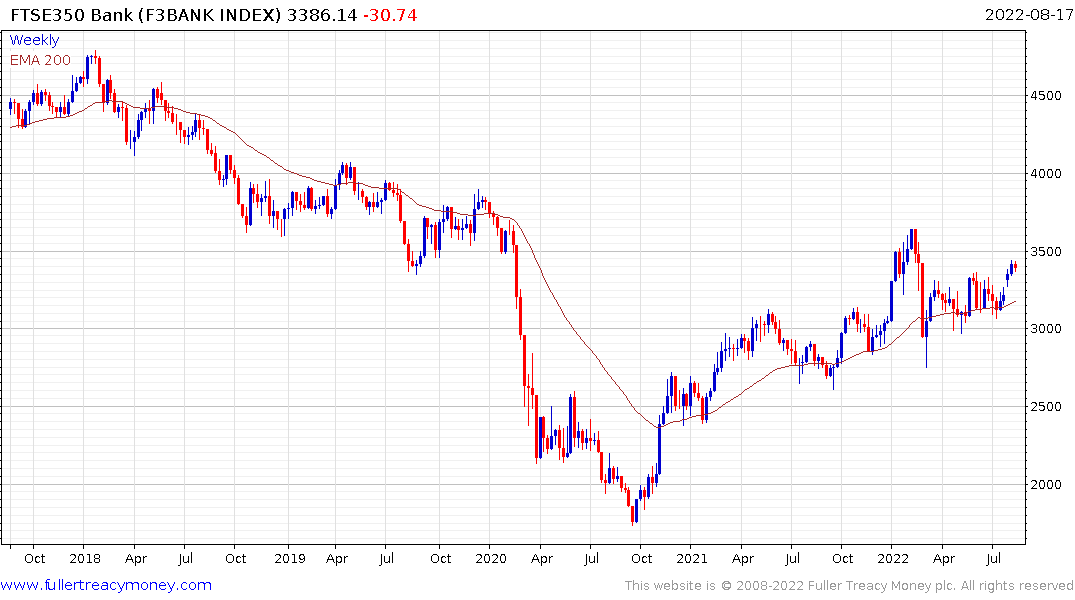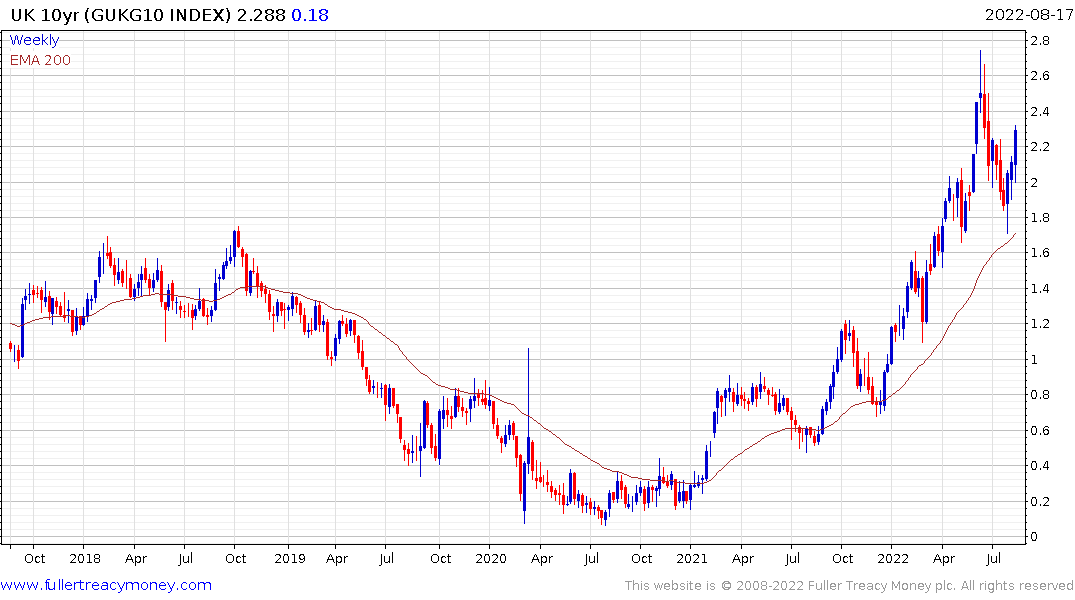UK Inflation Hits Double Digits for the First Time in 40 Years
This article from Bloomberg may be of interest to subscribers. Here is a section:
“UK CPI inflation surged in July amid rising food prices that helped lift the rate above market expectations. The peak is still likely come in October, when energy prices are due to be increased again -- we see annual CPI moving to a little below 13% at that point. With inflation now more than five-times the Bank of England’s target, the question isn’t whether the central bank will tighten, it’s by how much? Today’s reading makes it more likely than not that the BOE lift rates by 50 basis points in September -- our baseline ahead of the data release was for a 25-bp move.”
Economists are growing increasingly pessimistic about the UK, with the risk of a recession now seen as far more likely than not due to rising cost pressures. The BOE expects a recession to start in the fourth quarter, lasting into the early part of 2024.
The central bank expects inflation to surpass 13% later this year when regulators allow energy bills to rise again. That would mark the worst reading since September 1980, when Margaret Thatcher’s government struggled to bring a wage-price spiral under control.
In the normal course of events UK inflation should have peaked already. Money supply growth peaked on a year over year basis 18 months ago and on a month over month basis is now negative. At the same time the Bank of England has been raising rates, albeit modestly, for the last eight months and is now also talking about reducing the size of its balance sheet.
 Liquidity conditions are tightening, and the FTSE-350 Banks Index has been rangebound for more than a year.
Liquidity conditions are tightening, and the FTSE-350 Banks Index has been rangebound for more than a year.
The exogenous shocks, first from the pandemic and then the energy crisis, are exaggerating the inflationary pressures. Over a million people signed on for unemployment in early 2020 and massive employment volatility persisted into 2021. That left the economy ill prepared to tackle supply bottlenecks and an energy shock.
 Gilt yields have bounced emphatically from the region of the 200-day MA. That suggests continued scope for monetary tightening even as the risk of an economic contraction escalates.
Gilt yields have bounced emphatically from the region of the 200-day MA. That suggests continued scope for monetary tightening even as the risk of an economic contraction escalates.
It remains extremely likely price controls on electricity and gas will be introduced to ensure inflationary pressures are mitigated. That will reduce inflation in the short term, or at least until the cost of sustaining controls overwhelms the ability of the government to fund them. That was the pattern of boom to bust that characterised the 1970s.
This significant pressure on governments also enhances scope for the Iran deal to be revitalized. That would remove some of the pressure on oil prices which would be a welcome development for all of Western Europe with the possible exception of Norway.
Back to top

